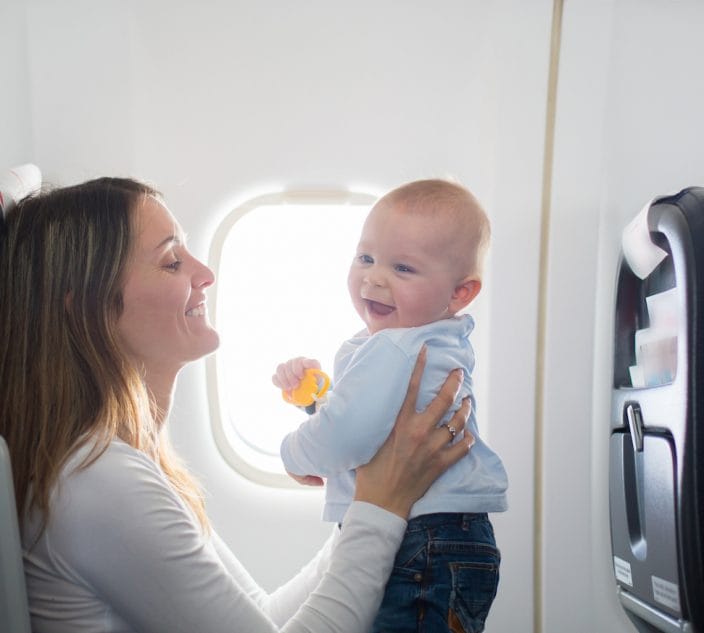 Photo: Getty
Photo: Getty Legislation recently proposed by five U.S. senators aims to expand protection of the rights of air travelers with disabilities and includes some components that could benefit passengers with food allergies.
The proposed bill would amend the current Air Carrier Access Act (ACAA), which has been in place for more than 30 years. A statement released by the senators states that “many travelers with disabilities still encounter significant barriers when they travel by air including damaged equipment, delayed assistance and lack of seating accommodations.”
Lawyer Mary Vargas of Stein & Vargas says the most critical piece in the bill for the food allergy community is the one that would allow people to bring forward a complaint to court and seek compensation if they felt they’ve been discriminated against because of their disability. This is known as a “private right of action.”
“The private right of action is critical because it allows people who have experienced discrimination in air travel to enforce their rights in court and creates accountability for the airlines when they deny passengers their federal rights,” Vargas told Allergic Living.
As it stands now, under the ACAA, those with a medical disability who feel they experienced discrimination from an air carrier can file a complaint with the Department of Transportation (DOT). The DOT would then decide whether to investigate.
Other aspects of the proposed bill that could stand to benefit food allergic travelers are:
- A 24-hour hotline to the DOT that would allow passengers with disabilities who experience a problem to call and get assistance from the department.
- There’s a proposal that could allow the Department of Justice to take action, when currently all complaints fall under the DOT.
- A person who doesn’t have a disability, but who advocates for someone who does, can file a legal complaint on behalf of the person in a case of perceived discrimination.
Vargas also sees the last point as being important to food allergic passengers.
“We are hearing reports of airlines removing not just allergic travelers but the entire party when an allergic traveler discloses their allergies or asks for accommodations based on their allergies,” she says. “And certainly, parents of allergic travelers are impacted when airlines do not allow pre-boarding and other accommodations that are necessary to allow for their children to fly safely.”
“There can be no justification for taking off somebody’s uncle who is traveling with them simply because they are part of a group of passengers with someone with a food allergy,” she says. “I do really think the associational language is important.”
Vargas says there will likely be a lot of support for the proposed changes, but agrees that it’s hard to know whether such a bill or certain components of it will pass in the current Congress.
This bill, numbered S.1318, and another related Senate bill have emerged at a time of a few high-profile incidents of poor treatment of passengers. “I think the public is increasingly aware of the gross violation of basic human decency in air travel and I think there is a growing understanding that the airlines have been allowed to act with impunity, they have been given a free card to do whatever they want,” says Vargas. “Something needs to be done.”





